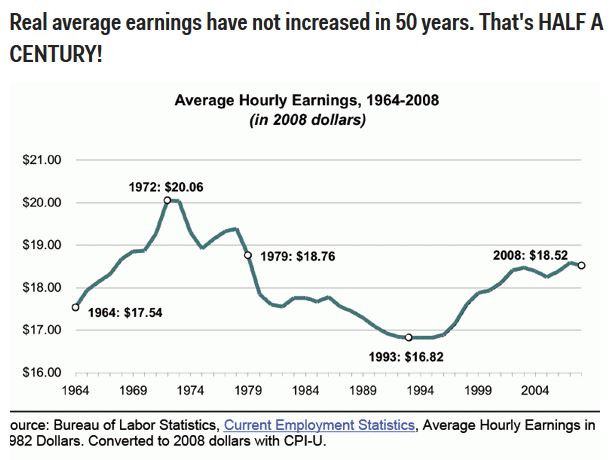 Slate.com has a great piece by Henry Blodget about fixing America’s “struggles with high unemployment and record inequality.”
Slate.com has a great piece by Henry Blodget about fixing America’s “struggles with high unemployment and record inequality.”
Blodget tackles, head-on, what he calls a persistent myth that’s become conventional wisdom, that the way to create jobs is to cut taxes for the rich, because they’re the entrepreneurs and investors, so therefore “rich people create jobs.”
Except as Blodget says, that’s not how you build a strong economy.
He cites rich investor and entrepreneur Nick Hanauer, who’s been saying this for years. Here’s the heart of Blodget’s piece:
What creates a company’s jobs, Hanauer explains, is a healthy economic ecosystem surrounding the company, which starts with the company’s customers.
The company’s customers buy the company’s products. … If the company’s customers and potential customers go broke, the demand for the company’s products will collapse. And the jobs will disappear, regardless of what the entrepreneurs or investors do. … (W)hether a new company continues growing and creates self-sustaining jobs is a function of the company’s customers’ ability and willingness to pay for the company’s products, not the entrepreneur or the investor capital.
Therefore, as Hanauer argues, suggesting that rich entrepreneurs and investors create jobs is like suggesting that squirrels create evolution.
Hanauer goes on to argue that money in the pockets of the middle class, not rich families’ bank accounts, is what drives the economy.
Second, as Hanauer observes, America’s richest entrepreneurs, investors, and companies now have so much money that they can’t possibly spend it all…
With the more than $9 million a year Hanauer keeps, he buys lots of stuff. But, importantly, he doesn’t buy as much stuff as would be bought if his $9 million were instead earned by 9,000 Americans each taking home an extra $1,000 a year.
Why not? Because, despite Hanauer’s impressive lifestyle—his family owns a plane—most of the $9 million just goes straight into the bank (where it either sits and earns interest or gets invested in companies that ultimately need strong demand to sell products and create jobs). For example, Hanauer points out that his family owns only three cars, not the 3,000 cars that might be bought if his $9 million were spread out over a few thousand families.
So, if nothing else, it’s time we stopped perpetuating the fiction that “rich people create jobs.” Rich people don’t create jobs. Our economy creates jobs. We’re all in this together. And until we understand that, our economy is going to go nowhere.
There’s also an opportunity cost to an economic policy where the only tool in the box for creating jobs is cutting taxes for the wealthy, cutting taxes for the wealthy or, for variety, cutting taxes for the wealthy.
When that choice is made, two things happen: the tax burden on the middle class and working poor goes up, while investments in the broader economic infrastructure – public schools and universities, highways and railroads and ports – get cut.

